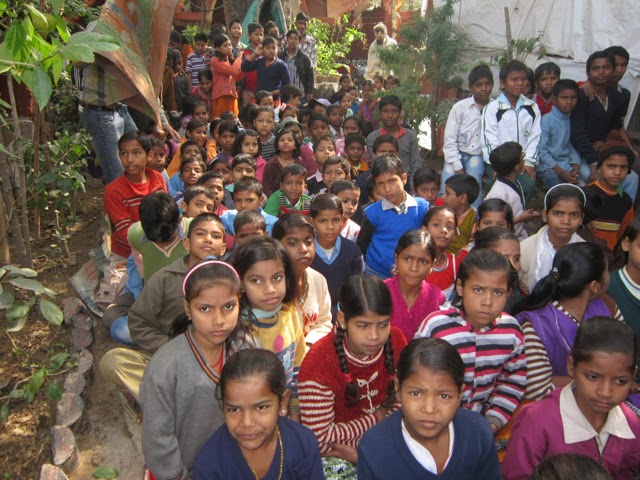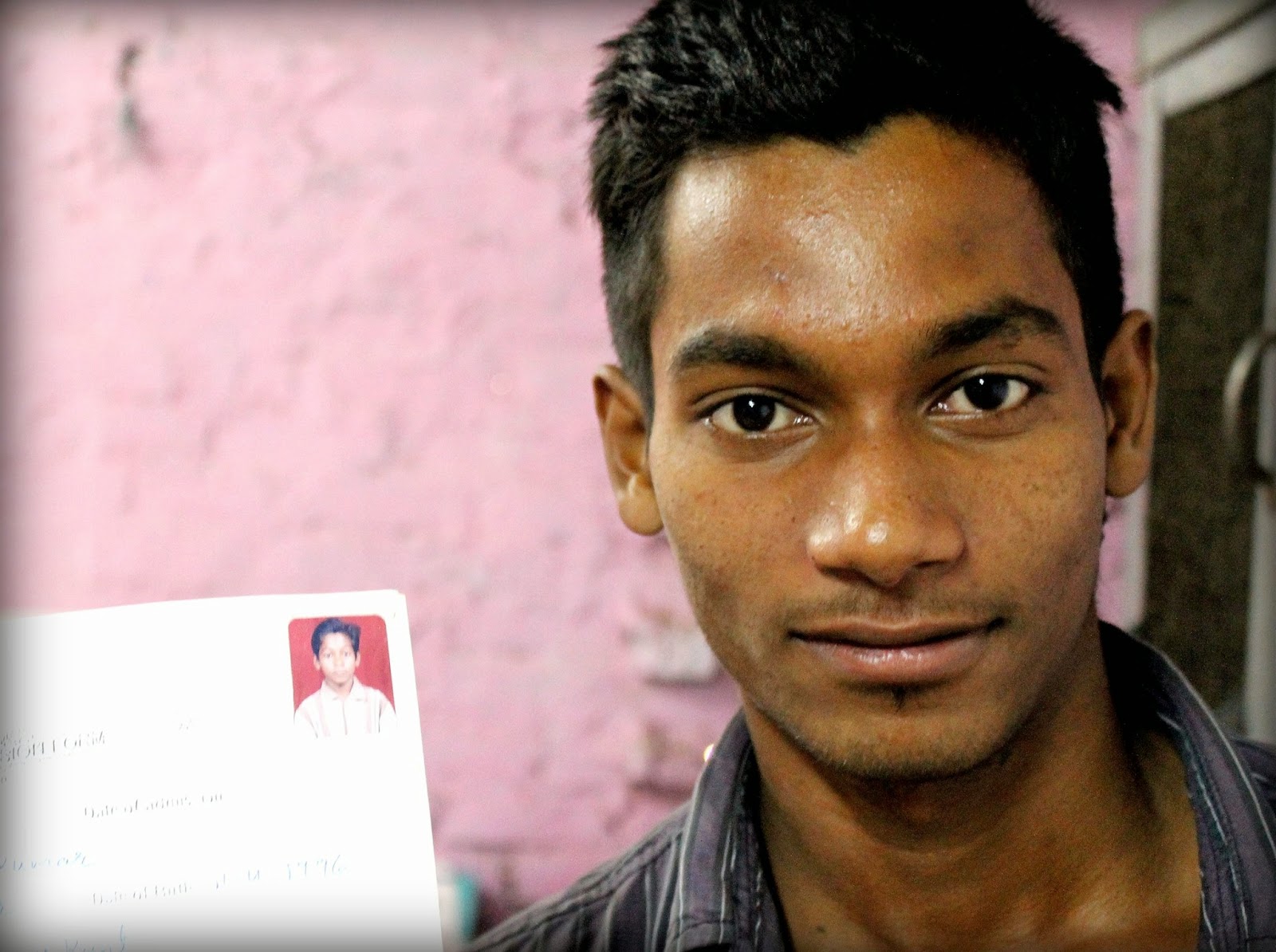One thing that the a appointment of a young, feisty, articulate and gutsy woman as our Education Minister has done is given many the motivation to share their views on how to heal our moribund education system. Almost every day one sees articles, opinions, columns, edits and more with suggestions on how to improve education in India. Recently I read one such article entitled the The educated illiterate! An oxymoron many would say. But not quite and I speak with experience as for the past decade and a half I have successfully run project why which such educated illeterates. But this is not the subject of this post.
The subject I guess would be my adding my two penny worth in the debate. I must admit I am a little disturbed by the content of the articles and even the suggestions emanating from the corridors of power. It seems that every one is ‘hung’ up on higher education, creating new IIMs and IITs, allowing Ivy league and other universities of standing to set up campuses in India. A little bird has also let out that our new Minister is contemplating revising text books.
The article I mention poses a pertinent question and gives the required answer: Does she want more graduates or does she want better skills? If she wants Narendra Modi’s promise to Young India to be fulfilled, she will have to create a regime for apprenticeships and on-the-job training to improve employability. This is something I have been debating for long: the need of introducing skill imparting courses that are in sync with the employment market as early as class VIII. The French model of Bac en alternance is a good one. A child who is not incline towards academics can chose this option where s/he attends school for 3 days and works as an apprentice for the other 3. The jobs one can think of are: tailors, hairdressers, beauticians, electricians, plumbers, carpenters, masons, salespersons in malls and supermarkets, repairing refrigerators, air conditioners etc. Finding teachers would not be a problem if one is willing to overlook formal education. I hope our Minister would.
I also agree with the author when she says that we should increase the number of doctors that graduate each year. I was shocked to learn that whereas 1.5 million engineers graduate a year but only 35,000 doctors do so. So maybe we need more medical colleges than IITs!
But let us get back to my concern. Everyone seems to be talking about higher education but in the present situation higher education of the kind mentioned is only available to the privileged few who have money and intellectual ability. For me education is Education for ALL and in the present situation higher education is a pipe dream for millions and millions of children in India.
To ensure that every child who has the intellectual ability – you cannot begin to imagine how many do – all state and government run schools should impart quality education akin to the one imparted in Central schools also run by the state government for children of parents employed in government institutions. What is the good for the goose in not for the gander!
Education for ALL means that every child born in this country should be given the enabling environment to aspire to any higher education institution whatever her/his caste, faith, social profile. This is what we do at project why with very limited resources and quite successfully. Rohit came to us when he was 9! In July they will be joining college. No big deal, many would say, but that is not the case at all. Rohit is a student of our Okhla centre, a centre we erected in a reclaimed garbage dump, in an area where the closest school is miles away, parents work long hours and children were easy prey for drug pedlars and thieving gangs. Had we not decided to set up this centre in spite of the initial resentment of the local mafias and borne their slings and arrows, Rohit would have been one of the 90% of children of the area that do not complete high school. He may have become a gang leader, like many boys like him. Yet all it took to ‘save’ him was a handful of committed educated illeterates, 4 bamboos and a blue plastic sheet to make all the difference.
So what do we do under the blue plastic sheet and the 4 bamboos? No rocket science. We just do what all schools should do: create an enabling environment for the child to blossom, teach the curriculum that is not taught in schools as it should, smother the child with love and understanding, believe in her/him and try and find her/his abilities and open the world to her/him with creative activities and contact with persons from different part of the world. No big deal! All you need is a heart.
Rohit may not have made it to an IIM or IIT but he certainly has broken the circle of poverty in which he was born with a little help from his project why friends.
This could be a reality for every child if schools ran as they should. Everyone feels that one of the problems is bad teachers. I disagree with them as all the people who make my Team would qualify as ‘bad’ teachers in normal circumstances. Yet year after year they have ensured that ALL project why children finish school. I am sure that all the so called bad teachers can be turned to ‘good’ teachers if one taught them to see with their hearts. True we need ‘good’ teachers but here again the definition of ‘good’ should not be based on certificate and degrees but on a desire to learn and teach.
I remember having joined the French Department of JNU at the age of 22 as Assistant Professor and having done all my education in French was handed over MA students and given the courses no one else wanted: Medieval Literature and Scientific Translation. Some of my students were older than me and some were very leftist in their thought. I was put to test on the first day when one of them asked me a question he knew I did not know. I smiled and told him that I did not know the answer and would find it by the next time – not an easy task in BG ( before Google) days! I knew I had passed the test and from that day onwards I never had a problem with my students. I had simply been honest!
To circumvent the bad teacher problem and give kids ‘better teachers’ the author of the article suggest technology. She writes: The finest minds have been working on the dissemination of $30 tablets that can be distributed far and wide if there is a will. Can she succeed where Sibal failed? Tech star Vivek Wadhwa believes accelerating the pace of technology adoption is the only solution because teachers cannot be trained and put into place fast enough. On line curriculum can be created and tablets pre-loaded with instructions and video conferencing capabilities can be rolled out within months. Irani, he believes, should give every child a tablet within a year.
I do not quite agree as what looks good on paper does not always work on the field. My first reaction is more on the negative side but am willing to give it a thought.
What I would like our Minister to do is take some simple measures even of they are not in sync with policies and educationists. I would first of all like to see the pass percentage across the Board raised to 50%, the no fail till class VII policy abolished and free education extended from 14 years to 18. This would make a world of difference to the underprivileged and poor children. Before I explain why let me just inform you that the poorest of the poor children have no other option than the local state run school. When the Right to Education was made law, instead of going for the option of improving the and upgrading existing state run schools, the policy makers came up with the absurd 25% reservation for economically weaker sections in all public schools. I do not when we will free ourselves from the shackles of ‘reservation’, an idea mooted with good intent but hijacked by political parties to suit their wily ends. A government that would do away with reservation in all categories would truly free India. The only reservation that is acceptable is the one for economically weak sections irrespective of their caste, creed etc and that too for one generation. Give weaker children extra support in all ways imaginable in school but allow them to fight their further battles on a level playing ground.
I would like someone to do an audit of the children who have benefited from the EWS category in public schools. They will be surprised to see that there few if any really poor children. This reservation had been hijacked by the middle class who are manipulative and can forge all documents needed to meet the requirements of the reservation. The poor children still attend overcrowded state run schools if at all. Unless these schools are improved education in the true sense will remain a dream for those who aspire to be doctors or engineers. You cannot imagine how many bright little faces promptly answer: doctor when asked what they would like to be. I am sure they would make doctors Hippocrates would be proud of.
Today with the no fail till class VIII policy you have children who can barely read or write after sitting year after year in overcrowded classes. We have had such kids come to us and believe you me, within a year of regular support they make up for all true lost years and even become toppers. The no fail policy may work well in public schools that have their own system of internal evaluation and where teachers are held responsible for the performance of the children in their classes, government school teachers who are paid much better salaries but also have connections in the right places, know that they will not lose their jobs easily. Should there be a complaint – a rare occurrence when most of the parents are literate or at best semi literate – they get away with a transfer or a few days suspension. The no fail policy makes them even more lackadaisical and they do not feel the need to teach. Remember 33% is all it needs. I had one senior secondary school principal tell me that they never teach more than 40% of the syllabus. A nice way of slamming all doors shut for these children. One really needs to review these policies in the light of the actual situation on the field.
Lastly I think it is also time we changed the the 6 to 14 free education policy. Education should be till the end of school and that is 18.
Will any one listen.



